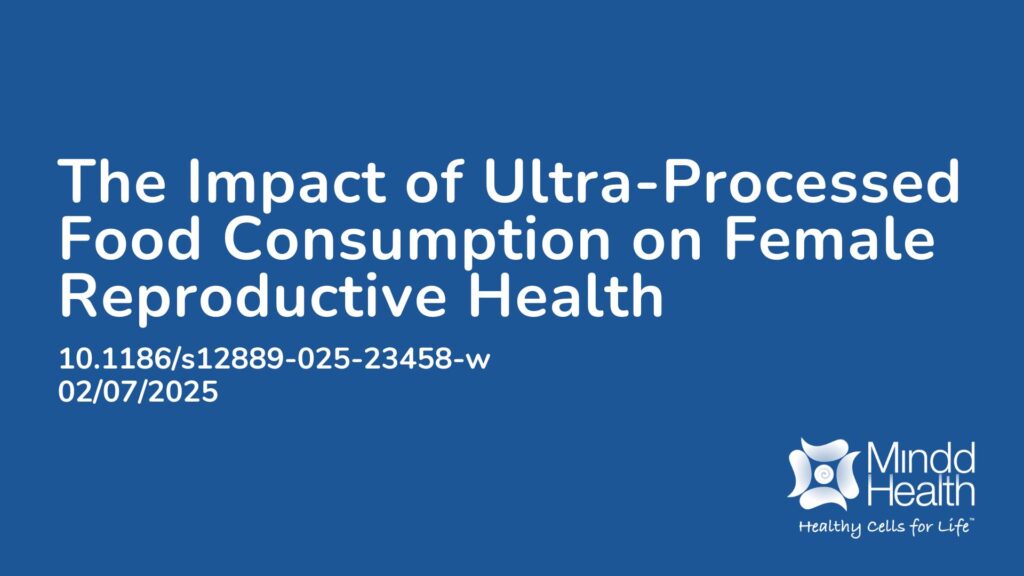Summary:
Infertility, defined as the inability to conceive after one year, is a growing public health concern that can affect women’s mental health. Female infertility has multiple causes, including ovulatory disorders and reproductive organ diseases. Environmental factors, such as diet, may also play a role, although evidence remains limited. Ultra-processed foods (UPFs), which are industrially produced foods high in salt, sugar, and unhealthy fats, have been linked to obesity, endocrine disorders, and immune dysfunction, all of which could potentially affect reproductive health. This study analyzed data from 1,645 women to explore the relationship between UPF consumption and female infertility. Of these, 417 were in the infertility group and 1,228 were controls. Women with the highest UPF intake had a significantly higher risk of infertility compared to those in the lowest quartile. Risk increased when UPF intake exceeded 40% of daily energy consumption. These findings suggest that high consumption of UPFs is associated with a greater likelihood of female infertility. While this study provides important insights, larger prospective studies are needed to confirm the relationship and guide dietary recommendations for women of reproductive age.
Abstract:
Background: Infertility is a significant challenge in women’s reproductive health, but the relationship between ultra-processed food (UPF) intake and female infertility remains unclear. This study aims to investigate the association between UPF intake and female infertility. Methods: Using data from 3601 women in the NHANES database, UPF intake was defined as the percentage of energy consumed by UPF in each participant’s daily total food intake energy. Propensity score matching (PSM) and logistic regression were applied to control for potential confounders and analyze the relationship between UPF intake and female infertility. In addition, the restricted cubic splines (RCS) were used to model the potential non-linear relationships. Results: After PSM, 1645 participants were included in the final analysis, comprising 417 in the infertility group and 1228 in the control group. Compared to the first quartile (Q1), UPF intake in the fourth quartile (Q4) was significantly associated with infertility in both unadjusted and adjusted logistic regression models (unadjusted OR: 1.43, 95% CI: 1.05–1.96, P = 0.025; adjusted OR: 1.43, 95% CI: 1.03–2.00, P = 0.033, respectively). No significant non-linear relationship was observed between UPF intake and infertility. However, the curve showed an overall upward trend, with a notable increase in infertility risk when UPF intake exceeded 40.8%. Conclusion: Excessive UPF intake is significantly associated with an increased risk of female infertility. Future prospective cohort studies with larger sample sizes are still needed to provide more stable evidence of the relationship between UPF intake and female infertility.
Article Publication Date: 02/07/2025
DOI: 10.1186/s12889-025-23458-w



